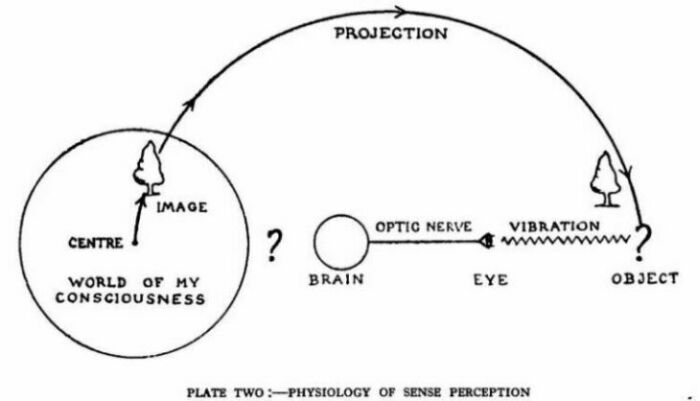Our internal environment is a major part of what science explores, and that includes psychology and related fields. Proper psychology
is a science, because it adheres to the scientific method, regardless of whether it at this point can explain everything within it on a molecular level.
Science has already shown us that biologically we don't 'see' or perceive anything directly, it's all signals converted by our senses into electrical impulses that are then reconstructed by the brain into a reality. Most people are content to leave the explanation at that point, ...
Yes, because it's a pretty good explanation considering how the rest of the world behaves (I mean behaviour of particles, e.g physics). If you for a moment step out of your "humanly" shell and see yourself as just another organism (which you are), then the explanation fits the data and explains things even without venturing too deep into the complete biochemistry of the brain, which remains largely unmapped for now. But the general way by which humans and other similar mammals operate is straightforward: stimulus (whether light photon(s), sound waves, mechanical disturbance of skin, volatile molecules binding to "smell receptors" etc), this transforms into an electrochemical signal, which is processed in the brain and alters the way the organism behaves (even if just altering memory or similar).
If your consciousness is not a result of this neuronal network, then how, for example, do psychoactive substances affect it so much? Drugs can shift consciousness to extremes by just altering this very electrochemical cascade.
Where is this reality that we witness taking place?
In a spacetime we call "our universe". Beyond that, we have no concrete data (please don't go into whether we can even trust our senses!). Speculation is good, but that's all it is.
And on what canvas? And just who or what is witnessing it (never mind how)? There are years of contemplation to be had on these very simple questions.
What/who: a set of molecules and ions interacting with its surrounding made of the same particles through fundamental interactions.
How: see explanation above or even your own post, you already know the
how.
Another similar and equally pertinent question is, when we imagine and see an object in our imagination, where is that object and on what?
That object is a set of matter in the same "universe" or spacetime as the object "witnessing" it. The process is no different from a digital camera "witnessing" some object and transforming signals into a "virtual picture" of the object.
Trust me, I've wondered those same questions beyond what science can explain for years, but having no data to corroborate my musings, I just can't bring myself to accept any of it, and have since stopped because it's boring. Living in the real world seems more fun, but as always YMMV.
I warned that my view is boring, but the OP asked for views, so meh.


